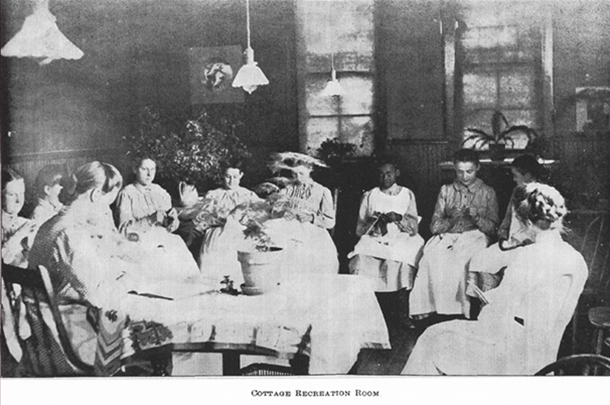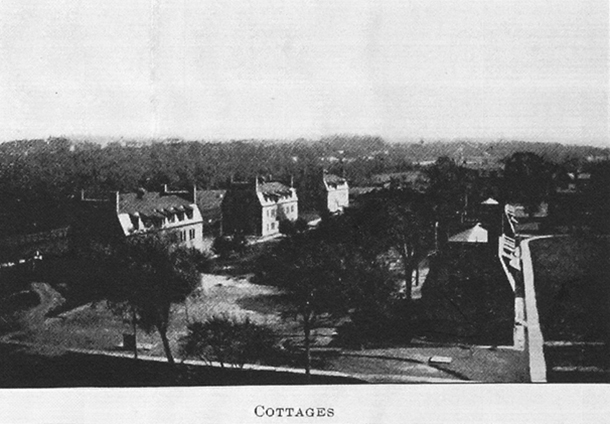Echoing trends over a century ago, today’s reformers’ are critical of large juvenile prisons and aim to create small, ‘home-like’ environments for confined youth.
In 1906, at the Seventh New York State Conference of Charities and Corrections, the first superintendent of the New York State Training School for Girls, Hortense V. Bruce, a medical doctor and a former settlement house worker, gave a speech on “Institutional Problems”. She said:
…the first [problem] is the system of housing to be adopted, that is, the cottage or the congregate system. There is now practically no question that the cottage system has distinctly the advantage over the congregate. No one questions that the ideal environment for the child is the home…The nearer the substitute home approaches this, the more nearly does it attain its purpose. Therefore the first argument in favor of the cottage system is that it gives something approaching a home life and this the congregate system cannot do. The smaller the group, the more individual attention the child may have, the less will there be a danger of its becoming only a cog in a wheel of routine, the more freedom will there be for the natural way of gaining knowledge by experience and finally the more it will receive and give love, sympathy, and understanding…In the small group, the child can realize itself; it may develop a sense of its own worth as an individual, and a sense of responsibility for the use of the talents entrusted to it, as it hardly can if one of a mass.
But contrary to thinking among today’s reformers who are calling for small, ‘community-based’ youth prisons to be built in cities where the children come from and where their families are, Dr. Bruce believed that young people in ‘home-like’ rehabilitation (training) centers would benefit from being in a rural environment. This, despite the fact that the vast majority of girls at the Hudson Training School were from New York City. She said:
The choice of a cottage system practically means a location in the country. With this true, there are numerous additional advantages, such as the out-of-door occupations that may be taken up by girls as well as boys, the productions from the farm that can be added to the dietary, room for play, and a richer environment for child life because of all that Nature has to offer.
What do you think?


